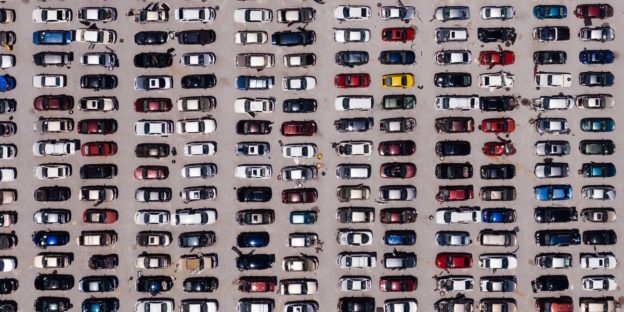When a person has trouble paying their auto loan, they can face repossession. Repossession laws vary by state, but in most cases, cars can be repossessed anywhere and without notification. Usually, the owner will have an opportunity to reclaim the car by catching up on payments or paying off the loan. If they’re unable to do this, the lender will keep the car and sell it to recoup their losses.
Banks and credit unions are motivated sellers. They are in the business to make money by borrowing money – not selling motorcycles or sports cars. So, if you’re looking to buy a car at a discount, it’s worth looking into repo inventory sold directly through banks and lenders. You can get a car at an affordable price and possibly negotiate something lower!
How Long Does it Take to Repossess a Car?
From a legal standpoint, a lender can repossess a car after missing just one payment. It all depends on the state and the terms of the auto loan. But while they might seem eager, lenders don’t want their borrowers to default on their payments. And they don’t want to repossess cars, either. This process costs money.
Unfortunately, not all vehicle owners can or want to catch up on their payments. If they can’t reclaim their car after the 30-day holding period, the banks will list it for sale.
Where are Repossessions Sold?
Lenders typically use third parties to repo and store their vehicles. Because they have to pay for storage fees, they want to move repossessions quickly. If the owner is unable to catch up on their payments, the banks will sell to one of the following:
Dealership
Those who have a dealer’s license can purchase repos directly from an auction. Dealerships do this all the time and have the resources to inspect, clean and repair the vehicles. However, it’s important to know that these cars are not true repos, at least to the consumer. They are more like used vehicles because they have gone through an inspection and cost more.
Private auction
Another option is for banks to sell their repossessed inventory through an auction where private sellers are welcome to place a bid. Private auctions give priority to their members who pay a fee to use their services. You don’t need a dealer’s license to join a private auction, but you will need to pay a fee.
Public auction
Public auctions are open to the public. Typically, you can browse the inventory for free, but if you want to place a bid, you’ll need to pay a nominal fee. Public auctions tend to have a wide inventory of used cars, but you might have to dig through them to find what you want. Good cars go fast, so we always tell customers to be patient as well.
Shop for a Repo Vehicle Today
Repossessions are just like other vehicles, though some do require a bit more work and maintenance to get them up to speed. If their previous owner wasn’t making their payments, they probably weren’t taking their car in for oil changes and tire rotations, either. As long as you’re willing to put this into your new ride, you can walk away with an affordable car with all the features you want!


